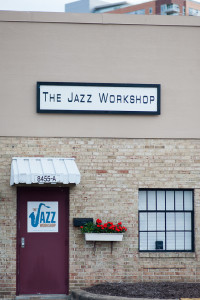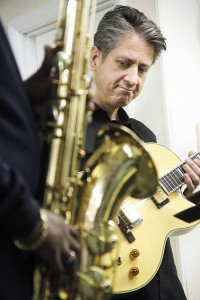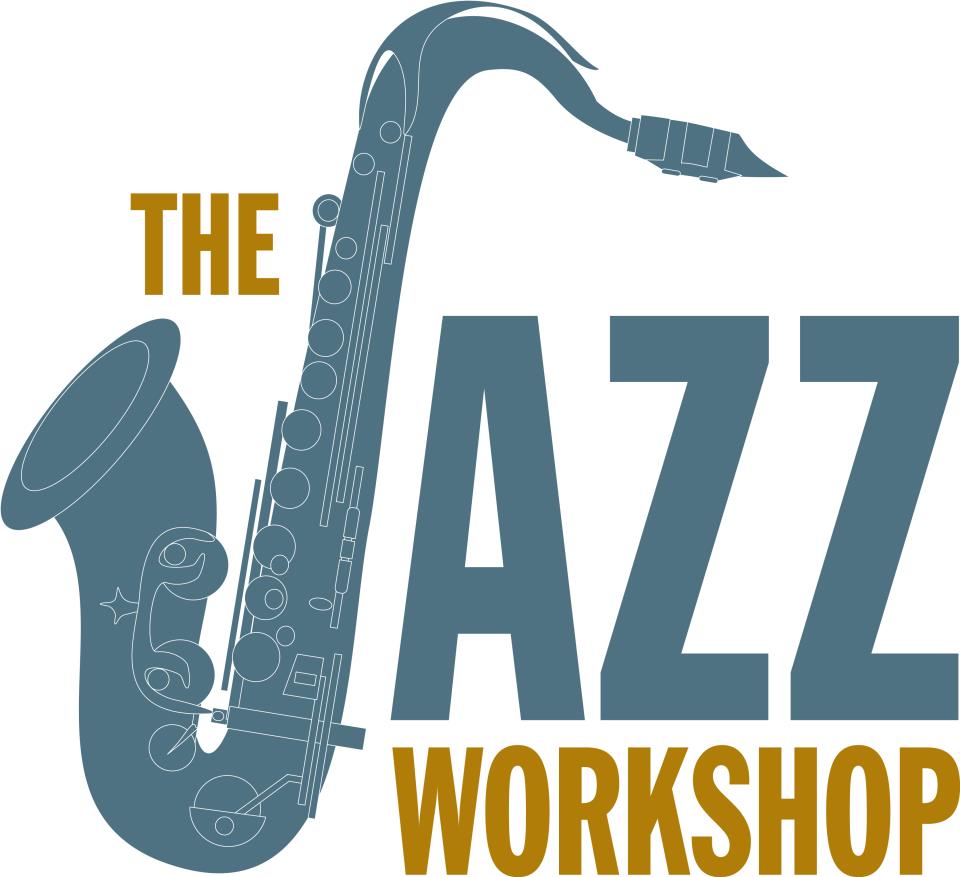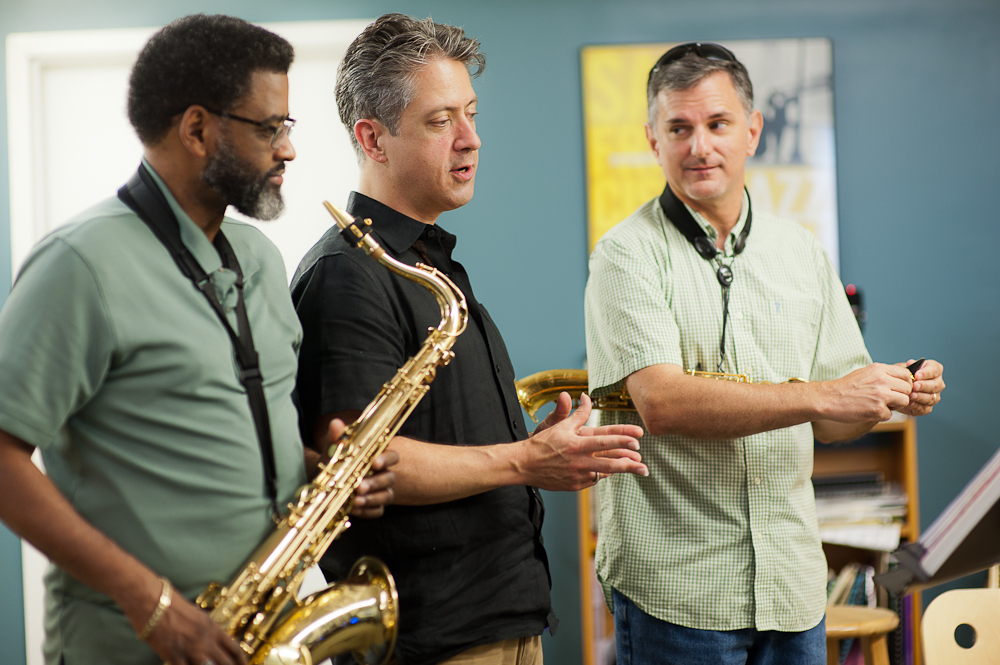INTERVIEW BY LAURA BITTNER
PHOTOS PROVIDED BY PAUL PIEPER
Located in Tysons Corner, Va., The Jazz Workshop hosts unorthodox jazz courses, meaning the courses are really more like workshops or jam sessions. However, there is a definite structuring in the course, to teach about jazz history, methods, and jazz at it is played in our modern world. Courses are available to students who would like to know the ins-and-outs of playing jazz music, who have an understanding of how to play their instrument. Paul Pieper, founder and director of The Jazz Workshop, discussed with us how this innovative teaching method is bettering the skills of local musicians in the Northern Virginia and Washington, D.C. areas and the perspectives of jazz as it relates to the local music scene.
How did The Jazz Workshop get started?
The workshop is something I founded myself about eight years ago. For a long time, I was the only teacher there. As I’ve expanded, I did hire another instructor who teaches on Mondays, so we’ve grown a little bit. But mostly, it’s just me. We have 17 sessions that meet each week, and each of those is a two-hour session. I teach 14 of those myself, and then my friend and colleague teaches another three. Of course, I’m hoping to keep expanding and adding teachers as we go.
 Can you tell me about your background in music? And the musical background of your other instructor?
Can you tell me about your background in music? And the musical background of your other instructor?
I would say that we have similar backgrounds. The shorter version is that we’re both freelance jazz musicians, but as far as my musical background, I started playing guitar when I as 13, which is an age when I think a lot of kids pick up guitar. I was studying with a private instructor who was a pretty serious jazz musician, it turned out. I think he saw that potential in me. I think I was very pliable. I wanted the chance to take guitar seriously, and I wanted to be taken seriously as a guitar player. Music was very important to me. I think he saw that seriousness and decided that I would be a good candidate to be a jazz guitar player, and I really took to that. I loved the music right away and I studied with him privately from about age 13 to age 18. He was really my “music school” because I really don’t have a formal musical education, but I studied with this guy for five years or so.
Then when I was 18 or 19, after I spent one year in college, I started to freelance and got a couple of nice gigs early on playing in a big band, but also playing with a great jazz saxophonist. I got exposed to the kinds of tunes that jazz musicians play [by] playing the standard repertoire in jazz nightclubs and also playing weddings and functions and those type of gigs, that maybe people think of as being less glamorous, but that’s kind of your bread and butter when you’re a freelance jazz musician. You play a lot of different kinds of things. So from the time I was maybe age 20 to age 35, I was making my living gigging all the time, playing with all kinds of different jazz musicians, and really learning what it meant to be a jazz musician. I got to learn the repertoire. I learned what worked and what didn’t, and I learned what it meant to be a professional. … When you got around older jazz musicians, they knew what the music was supposed to sound like, and they would let you know in a hurry if you weren’t doing it right. So I really learned from all of that. To my way of thinking, that was a real education that was to really learn jazz from the people who love the music the most and who played it right.
During that time I was teaching guitar, but not doing anything like the workshop, so most of my education has been on bandstand, learning from the people who played great jazz, and trying to give them what they wanted, and to learn the skills that I needed to be viable in that arena. Then when I was 35, I had the idea to start a workshop for a while. I thought that,it doesn’t seem to be that there [was] any way for people who want to play in a group to be able to have that experience, and also to get that kind of education while they’re doing it. … So, that was when I started to give the workshop a try, and it’s grown slowly [throughout] the last eight years, but it’s gotten to the point now where we have about 80 students that attend every week in the 17 different sessions. I’m really pleased with the way it’s taken off.
Did you grow up in Northern Virginia?
I was born in D.C., but I grew up in the suburbs, pretty much Falls Church. So I’m from this area; I’ve always been here. I’m a true native.
Can you tell me why jazz stuck out to you more than other genres?
I think it was a couple of things. Before I played guitar, I played violin. I was just one of those kids whose parents handed them a violin, and I played it at school. But I wasn’t passionate about it. I knew that I was good at music, but I wasn’t good at the sort of extremely disciplined, classical world where it was really all about replicating what somebody had written. [I felt like] you had to try to play it as perfectly as possible. It didn’t feel creative to me, and the music didn’t feel personal to me. It didn’t really have a groove, and all the music I was listening to as a kid was rock music and music with guitars. I would see these kids who played violin, and some of them were real good. They got a lot of respect. They had a lot of adults telling them how wonderful they were and just got a lot of acclaim. I would look at these kids, and I would think, “I wish that I could play an instrument well enough that somebody would tell me that I was good, or that I would receive some kind of respect or acclaim.” I think the moment that I was exposed to jazz, it appealed to me because this was also a serious music, and I knew that. At 13, I knew that jazz had a place in the culture, and that it was real music that people would respect.
That was kind of was exciting to me. I thought to myself, “Here’s a way I can be like those kids who were playing violin, except that I want to do it my way, and I’m gonna do it playing music that means something to me that has a groove and that I can do playing the guitar, which is an instrument that I feel strongly about.” So that was one thing. The other thing I quickly perceived was that jazz is really deep, and it’s something that I would have to spend a long time to master it — not that you could ever really master it. But I felt like it was something I could sink my teeth into, and I really liked that. That appealed to me — the idea that I couldn’t really get it overnight, that I was gonna have to apply myself [during] a long period of time — and that felt to me it would be really rewarding. I wanted to work hard’ I wanted to work at the guitar; and I wanted to become really good. I just knew that’s what it took. That felt to me like something that could work.
The other thing is I feel like I’ve always had a pretty good ear as a musician, and I sensed right away in the classical world that nobody ever cared that I had a good ear. They could have cared less; I never got any kind of respect for that. But in jazz, from day one, I got people telling me, “Hey, you’ve got a good ear. That means something. We know what that means, and that’s gonna help you a lot playing this music.” Turns out it did help me a lot when it came to improvisation and stuff like that. I could hear what notes were supposed to work and what notes were not going to work, and I think it gave me a leg up. Of course, I think we’re drawn to things we think that we’re good at, that we have a chance in being successful in, and I feel like that from the very beginning with jazz, I couldn’t always play it well. But I felt like I was doing what I was supposed to be doing, and it felt natural.
Is The Jazz Workshop a school, a class, or a jam session?
It’s kind of all of those things. People come into the workshop, and when you join the jazz group, it meets at the same time every week. We play music together; we talk about music; we try to get better at playing music in a group; and really what I’m trying to do is prepare these people for the “real world of jazz” as I know it that I learned about from playing full time for 15 years and studying it for six or seven years before that. I try to get people to do things in a way that would work in the real world that if they get around serious jazz musicians, these people are not going to look at them and say “you are doing everything wrong.” I want them to get out there and be viable, or at least provide them with that kind of education, and give them that kind of guidance. What they do with [that information] is ultimately up to them.
I think for a lot of people, the workshop fulfills a lot of different things. It becomes a social outlet. They come and they see the same people in the group for two hours every week. It’s a great hang; it’s a chance for them to spend time with their friends; it’s a chance for them to be around other people who love music and who love jazz as much as they do; and it’s a chance for them to kind of be seen as jazz musicians for other people. It’s a chance for them to feel acknowledged and [feel like] their work is paying off. It’s a unique experience. There’s nothing quite like The Jazz Workshop. It’s kind of a class, but it’s not as structured or formal as class. It’s kind of a jazz session, but it’s not like anything goes, let’s just jam. I take care to make sure that there’s learning that goes on, and I pick the tunes with we play with the goal in mind of giving people an education in the standard repertoire; the tunes that jazz musicians have had to learn for the last 50 years and. in my opinion. will always have to learn. There’s a core repertoire to this music that people need to know about, and part of my job is to tell them that.
I’m also there to keep them within the bounds of standard practice. I want them to know how jazz tends to be played in the real world, and I want to tell them if you go to a real jazz session at a club where people are serious about jazz, you’re not going to be able to do this thing you just did, you would do this instead. So it has elements of a jam session; it has elements of a class; it has elements of a social event. Usually there is sort of a lecture and discussion portions. We get into some of the philosophy of jazz; we talk about the art and the science — it’s a really multifaceted thing — and those two hours really fly by, that’s for sure.
About how many people are in each class?
I try to limit it to five, but in some cases, I’ll have six. We’re really trying to play small group jazz, not like a big band or anything. So limiting it to five [people], I think that’s sort of what you would find out in the world, because a jazz group is probably not going to have more than five people, maybe six sometimes. I think that it makes a better experience for everybody, and I’m able to give people more individual attention that way too.
How do students enroll if they would like to join The Jazz Workshop?
Generally, people make initial contact by emailing [email protected]. Part of my job is trying to figure out where people are in terms of their level, and usually by asking the right questions, I can sort of figure that out. After eight years, I’ve gotten pretty good at telling what group somebody might be a good fit for. Occasionally, I can’t tell, and then I’ll ask the person to come in for a little assessment, which is not the same as an audition precisely. The goal is to let me know where they are in regards to jazz and to put them in a group they’ll be comfortable with and not overwhelmed by.
Anything you’d like to add?
I want people to know the workshop emphasizes what’s easy about jazz, not whats hard about it. There’s plenty of time to get to the heart of stuff (so people will feel more comfortable about playing jazz in this environment if they are initially thinking they cannot play jazz). I think there’s benefit in emphasizing what’s easy to get people started and keep them moving down the road. I like to think that the workshop is a friendly space, and if people come in and give it a try, they won’t think jazz is as difficult, or as weird, or as strange as they think it is. I’d like to think it’s a safe space where people can really discover what’s amazing about jazz.



I am interested. I was taught by a jazz guitarist in the 70s and am getting back into playing and could use some help.
I am interested. I was taught by a jazz guitarist in the 70s and am getting back into playing and could use some help.